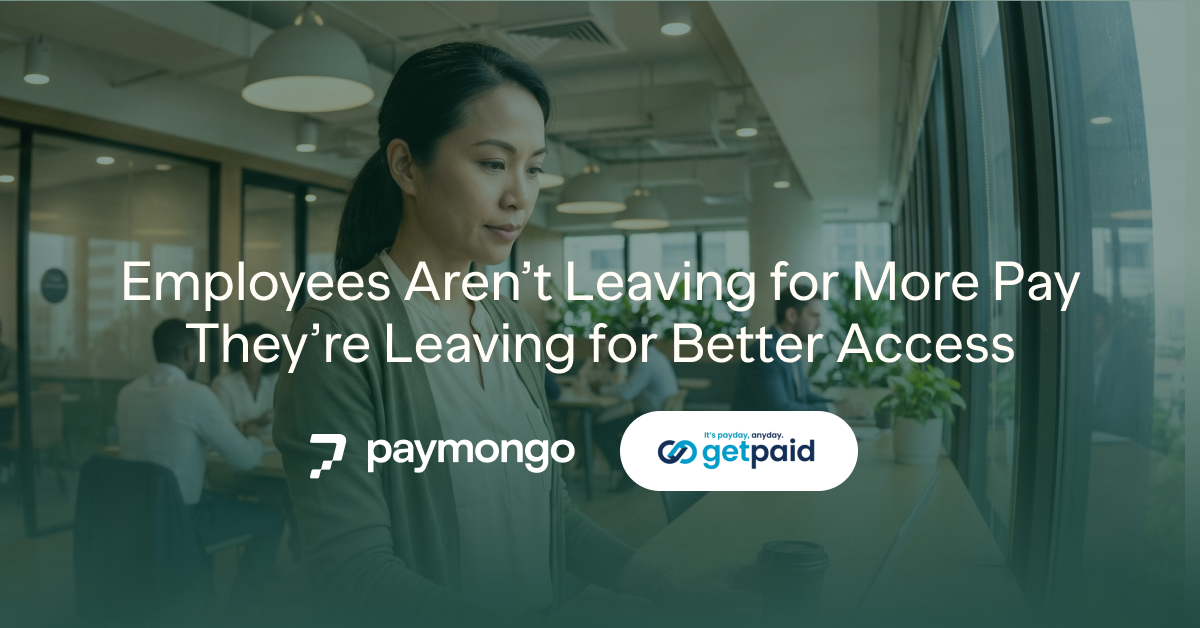PayMongo includes a tax reporting feature in platform for merchants

Table of Contents
Our Chief Financial Officer, Jay Olos, explains how PayMongo’s pioneering effort makes tax reporting easier for entrepreneurs to make their businesses grow.
How does PayMongo help its merchants in filing their withholding tax and VAT?
As a forward-looking fintech company, finance is embedded in our products and a subdomain of finance is accounting and taxation. As we know, we enable our merchants to collect sales online through credit card, debit card, e-wallets and more, and we want to ease their burden of tax reconciliation and filing. Coming from my experience with my former startups and companies in various capacities as CFO or comptroller, I find [tax reconciliation and filing] very inefficient to do manually, so when I joined PayMongo, I really emphasized the need for this kind of feature.
I rolled-up my sleeves and worked with our product and engineering teams to embed an automated tax compliance feature. What do I mean by that? We help our merchants automatically compute and report their VAT and withholding taxes from the transactions processed by our platform. I would consider it a revolutionary feature because that’s a huge help in the finance teams of our merchants and that’s something that competitors are not providing right now. In just one click of a button, they can determine how much taxes they should be paying to the BIR from all their transactions processed through PayMongo.
How does this PayMongo feature make the merchants’ tax reporting easier?
With just a click of a button on our merchant dashboard, they can export a report showing all their sales transactions processed through PayMongo. The related taxes are specifically identified and accurately computed and then they can easily have it loaded in their accounting systems either manually or through APIs or middlewares if they do have those features. So, by doing that we help the merchants save tons of valuable time by eliminating the manual work.
Before automation, what a typical accountant of a merchant does is they email us in Finance and ask us for a list of their transactions for the month and of course, we will be sending out an email so there’s a back-and-forth manual email. That’s when we compute the fee that they will be deducting from their payout minus VAT plus withholding tax, if they are a withholding agent. So, imagine the back-and-forth email, the manual work that my team has to do and their team has to do. I told (Paymongo Chief Technology Officer) Jaime (Hing) and (product manager) Marielle (Ong) that, hey, we can automate this because I have already seen this in other countries. We can implement this here. Let us be the pioneering ones. We embed the tax reporting feature in our platform.
Why are we doing this for our merchants?
Well, you know, we grow as our merchants grow and part of that growth story is being able to successfully navigate the taxation landscape in the Philippines. Let’s face it, the Philippines is one of the countries with a very complex taxation law and process. However, that should not hinder every business to comply because taxation is something that every business must embrace and successfully navigate in order to be successful. We believe that by helping our merchants automate, a part, if not all of their sales process and related taxation, we can save them valuable time and resources that they can invest further for their own growth. It is a value added that PayMongo is providing to our merchants. We are not just a payment company. We grow as our merchants grow. We really want to embed in our product that capability to enable them to have further growth.
What do first time entrepreneurs have to know when it comes to filing taxes?
It depends on their classification. First of all, are they tax registered? If not, then they should identify when the proper time is to register with the BIR (Bureau of Internal Revenue). More established businesses already have tax registrations. Once you get your Certificate of Tax Registration, your business will be subjected to the very complex taxation. I am talking about individuals and even start ups who are still testing the waters or getting that necessary product-market fit. For the entrepreneur or the owners of that business, first thing they need to know is what are the tax types that they will be subjected to. Not all businesses will be subjected to VAT because there is a certain threshold, for example. Not all businesses will also be subjected to withholding tax because there are also certain criteria. And of course, as an entrepreneur, you don’t want to dip your toes in something that will hurt you. So, it is really important for you to know what kinds of taxes your business will be or are subjected to if you are already registered. The second is tax planning because it is very important. They should look into taxation not just as a compliance. There are only two things permanent in this world, they say: death and taxes. So, definitely they should think long term about how they are going to plan and execute and navigate their businesses without compromising the taxation aspect, even utilizing the taxation principles and concepts for their business’ growth.
Is there an easy way of understanding taxation?
Yes, there is. It just takes some diligence or effort because it is a very complex topic. I myself, I am not good at math, but I have to understand taxes because number one, that is something that is given in any business. I don’t expect them to be experts in taxation unless they are CPAs or tax professionals but if there is a tip I can provide to our merchants or entrepreneurs for them to fully understand taxes, attending conferences, summits or maybe, just by looking over the internet can be of great help. Later on, we at PayMongo, we’ll be having these kinds of programs for our merchants to understand the intricacies of taxation.
It’s also more of a self-study because the NIRC (National Internal Revenue Code) of 1997 is a very thick book and you also have to understand the taxation law together with the SEC (Securities and Exchange Commission) regulations because they go hand-in-hand. It requires discipline.
The best, I would say, route to navigate taxes is seek an expert. It can be an accountant. If you are now able to employ a finance staff, you should invest in those requirements. Good thing if they are a merchant in PayMongo, it would be easy for them to understand taxes because that is embedded in a platform.
If I am an owner of a small business, do I need to hire an accountant right away?
Yes, if you can afford it. But in your first few months, you can still do it. The richest man in Hong Kong, Li Ka-shing, was the accountant of his own business on its first years. He single-handedly handled his books and taxation and by doing so he acquired financial discipline. So, it enhanced the required financial discipline and financial literacy for him to really get the necessary, I would say, skill set or discipline to look at your finances and utilize that in proper execution and strategizing about your business. But there would be a point in your business life cycle where you will say, “Oh, I have already too much transactions, sales, expenses, I cannot do this alone anymore.” Then that would be the time when you can hire an accountant to help you out.
What are the frequently asked questions to the PayMongo Finance Team?
Number one question is, are you subject to withholding tax. Because of course, we deduct fees, the MDRs and fixed fees from the payouts of our merchants. We have a lot of merchants that are withholding agents so they are always asking because that is an obligation on their part as a withholding agent, that they should withhold a certain portion of their payment to us, and they remit of the BIR. In the case of PayMongo, our business registration says that we are a service business, so we are subject to 2 percent withholding tax.

The second one is VAT, because we have VAT-registered merchants. Especially if they’re really big, they want to utilize the input VAT asset that will come out of their transactions with us. So, what does that mean? Of course, all of their sales are subject to output VAT, and they want an input VAT that they can offset against that output VAT so they can pay minimal VAT liability to the BIR. Otherwise, it will significantly impact their working capital.
What do “withholding agents” mean?
Withholding agents are those businesses that are mandated by the BIR to withhold taxes on certain payments. So, not all businesses in the Philippines are withholding agents. Every year, the BIR publishes a list of withholding agents on their website. So, there are certain criteria for a business to become a withholding agent. I think primarily it’s the sales or their revenue. The BIR sets a certain target in order for a business to qualify as a withholding agent. It’s a mechanism by the BIR to track and monitor taxes. 🌱
Subscribe to the PayMongo Blog
Join thousands of business owners in getting the latest financial insights




.png)

